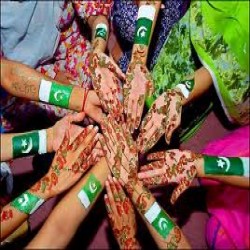Analytics
The best Experts' Views, Marks and Forecasts on Economics >>
Rules of Entry and Participation. Become a Member of Professional Society of Economic Journalists! >>

ISLAMABAD, (Itar-Tass) — Pakistan that currently has the observer status in the Shanghai Cooperation Organisation (SCO) intends to seek the full-fledged member status in this influential regional organisation, Pakistani Prime Minister Yousaf Raza Gillani told reporters on Tuesday at the government’s press service commenting on the results of his visit to St. Petersburg. Pakistan's prime minister on Monday arrived in St. Petersburg where he took part in a meeting of the SCO heads of government.
“By the present time, favourable conditions have formed for expansion of cooperation between Pakistan and Russia,” Gillani said at a gala dinner with representatives of the Russian and Pakistani business community. “There are very good opportunities at present for the development of Pakistani-Russian cooperation in such fields as energy, metallurgy and industrial production, trade and investment.” According to the Pakistani government head, Islamabad will do everything possible to attract Russia’s businesses and investment in Pakistan.
On Monday, Yousaf Raza Gillani met with RF Prime Minister Vladimir Putin after a session of the Council of the Heads of Government of the Shanghai Cooperation Organisation. The Russian prime minister recalled that he had many times met his Pakistani colleague in other countries. “It’s a pleasure to see you in Russia, in St. Petersburg this time,” he said. Putin stressed that Pakistan and Russia have reached the pre-crisis level of trade turnover. “But still, its absolute figures are unfortunately quite modest for such countries as Pakistan and Russia,” he said.
The Pakistani prime minister said he was glad that meeting was taking place in Putin’s hometown and recalled that St. Petersburg and Karachi are twin cities and large economic centres in the two countries. “As an observer [in the SCO], we are quite impressed by the impetus you have given the SCO,” Gillani said. He also said that Pakistan would be interested to develop cooperation with Russia in the field of defence and in the economic field. Gillani believes that Pakistan and Russia should also step up energy and infrastructure cooperation in the SCO.
RF President Dmitry Medvedev and Pakistani President Asif Ali Zardari met in May of this year 12 to discuss bilateral relations and the most pressing international issues. This was the fifth meeting between Medvedev and Zardari. The previous four were held on the sidelines of the quadripartite meeting between the presidents of Afghanistan, Pakistan, Tajikistan, and Russia in Sochi on August 18, 2010; on the sidelines of the Shanghai Cooperation Organisation (SCO) meeting in Tashkent on June 10, 2010; at the meeting of the four presidents in Dushanbe on July 30, 2009; and on the sidelines of the SCO Summit in Yekaterinburg on June 16, 2009.
The presidents of Russia and Pakistan adopted a joint statement. The two asides also signed several bilateral documents, including an inter-governmental agreement on air service and interagency memorandums in the fields of energy and agriculture.
The joint statement emphasised the considerable potential for further deepening of bilateral ties, particularly trade and economic ones. Pakistan expressed gratitude to Russia for timely humanitarian aid (70 tonnes of basic necessities, targeted contributions to specialised international organisations to a tune of seven million US dollars) provided after a disastrous flood in Pakistan last year. Bilateral trade turnover has not yet reached the pre-crisis level and stood at 362.7 million US dollars in 2010 (615.6 million US dollars in 2008, and 334.4 million US dollars in 2009). The sides pin great hopes on the work of the Russian-Pakistani Inter-Governmental Commission on Trade, Economic, Scientific and Technical Cooperation.
The SCO is a regional international organisation founded in 2001 by the leaders of China, Russia, Kazakhstan, Tajikistan, Kyrgyzstan and Uzbekistan. Iran, India, Mongolia and Pakistan have the observer status in the organisation. Representatives of Afghanistan and Turkmenistan take part in the SCO meetings as guests. The SCO Dialogue Partner Status was granted to Belarus and Sri Lanka. In 2011, Afghanistan applied for membership in the regional organisation.
Originally the SCO was conceived as a union aimed at strengthening stability and security in the region, combating terrorism, separatism, extremism, drug trafficking, promoting economic cooperation, energy partnership, scientific and cultural cooperation.
During 10 years of the organisation’s existence the importance of the economic component of cooperation has increased significantly - in this short in the historical perspective period major work has been done to create favourable conditions for deepening the cooperation in trade, economy, investment, science and education. Large-scale regional projects are successfully implemented in the interest of all the member states, observers and dialogue partners.
The main issues of economic, financial and investment interaction are within the competence of the Council of the Heads of Government of SCO Member States that meets once a year. The Council works out many initiatives to strengthen the economic base of the organisation, the RF government’s press service said.
The Council of Heads of State is the top decision-making body in the SCO. This council meets at the SCO summits, which are held each year in one of the member states' capital cities.
The Council of Heads of Government is the second-highest council in the organisation. This council also holds annual summits, at which time members discuss issues of multilateral cooperation. The council also approves the organisation’s budget.